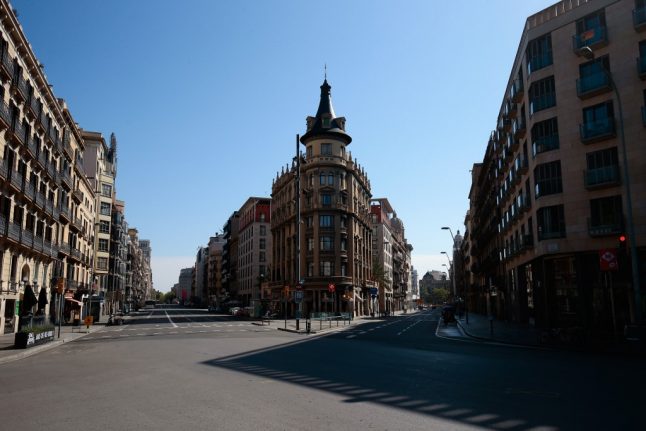“It is a scenario which is on the table because it is during the weekend that there are more social interactions,” the spokeswoman for the regional government, Meritxell Budo, told Catalan public radio.
Infections have soared in recent days in the wealthy northeastern region, home to around 7.5 million people, as well as the rest of Spain, which last week became the first European Union nation to surpass one million confirmed
Covid-19 cases.
To try to curb the infection rate Spanish Prime Minister Pedro Sanchez on Sunday declared a national state of emergency, and a curfew covering all of Spain except the Canary Islands where infections are lower.
He has said the government wants to avoid a repeat of the nationwide lockdown put in place in March during the first wave of the pandemic and only fully lifted in June.
Elsewhere in the world Israel, Ireland and Wales have recently imposed lockdowns confining people to their homes for all but essential reasons to fight the virus.
“We must avoid a total lockdown as we had in March, unless it comes absolutely necessary and it is the only option. We must look at other scenarios and this is one of them,” Budo added in a reference to a weekend lockdown.
Infections have soared in recent days in the wealthy northeastern region, home to around 7.5 million people, as well as the rest of Spain, which last week became the first European Union nation to surpass one million confirmed Covid-19 cases.
Meanwhile, Catalonia's neighbouring region of Aragon — which is home to some 1.3 million people — announced it would close its regional borders as of Tuesday.
The measure means no one will be allowed to enter or leave the region unless they have a “justified” reason, such as to go to work or seek medical care, the regional government of Aragon said in a tweet.
The northern region of Asturias said it would announce later on Monday whether it will adopt a similar measure.
Two other northern regions, Navarra and La Rioja, have already closed their regional borders.
To try to curb the rise in coronavirus infections, Spanish Prime Minister Pedro Sanchez on Sunday declared a national state of emergency, and a curfew covering all of Spain except the Canary Islands where infections are lower.
He has said the government wants to avoid a repeat of the nationwide lockdown put in place in March during the first wave of the pandemic and only fully lifted in June.
Declaring a state of emergency gives Spain's 17 autonomous regions legal tools to impose tougher restrictions, such as the closure of their borders, in order to slow the spread of the virus.
The initial state of emergency will last for 15 days, but Sanchez has said he wants to prolong it until the beginning of May.
But the leader of the main opposition conservative Popular Party (PP) said Monday he will only accept the measure being extended until mid-December.
The government seems to have secured enough support to push through any future extension without relying on the PP, however Sanchez has said he would like to have the support of the main opposition party.
The latest figures show the virus has claimed nearly 35,000 lives in Spain.
READ ALSO:



 Please whitelist us to continue reading.
Please whitelist us to continue reading.
Member comments